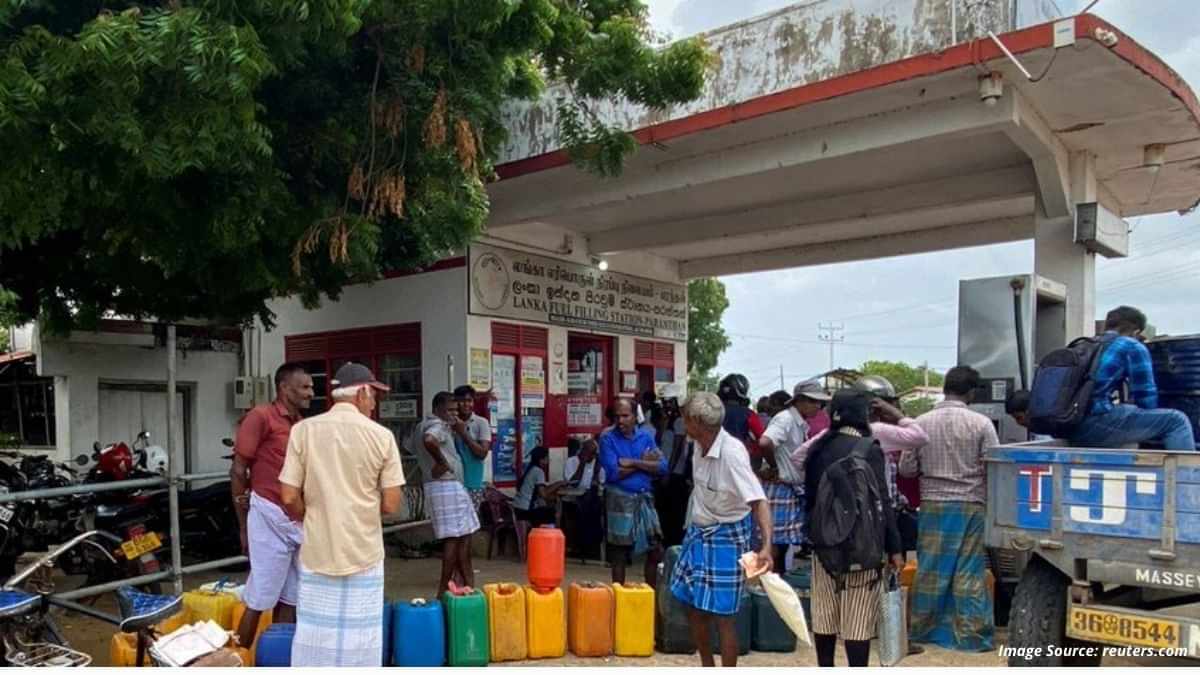[ad_1]

Sri Lanka Economic Crisis: After weeks of uncertainty and negotiations, IMF has approved a bailout loan of USD 2.9 billion to Sri Lanka to help revive its ailing economy. As per the statement issued by IMF, the global lender has reached a staff-level agreement with the Sri Lankan authorities to support the country’s economic policies with a 48-month arrangement. Based on the agreement, IML will provide an Extended Fund Facility (EFF) of about US$2.9 billion, which is subject to approval by IMF management and its executive board. The key objective of IMF’s Bailout Deal for Sri Lanka is to restore macroeconomic stability and debt sustainability.
IMF staff and Sri Lankan government officials have reached a staff-level agreement to support the country’s economic policies with a 48-month arrangement under the Extended Fund Facility (EFF) of about US$2.9 billion: https://t.co/5JCr2XAw6y | (iStock/Shakeel Sha) pic.twitter.com/o4TAzUztsE
— IMF (@IMFNews)
September 1, 2022
The USD 2.9 Billion bailout approved by IMF comes following a week-long negotiation carried out by the IMF mission to the island nation. The mission was led by Mr Peter Breuer and Mr Masahiro Nozaki who were in Sri Lanka from 24th August to 1st Sept 2022 and held extensive discussions with Sri Lankan Authorities to design a comprehensive economic reform programme. With the IMF bailout nearly confirmed, Sri Lanka is also likely to receive further relief from other multilateral creditors.
IMF’s USD 2.9 Billion Bailout Package for Sri Lanka – Key Highlights
The loan extended by IMF to the cash-strapped Sri Lankan government to help revive its economy will be managed under the conditions identified by the global lender for the island nation. The Economic Revival and Restructuring Programme designed by IMF officials will be spread over four years and will include strict norms about how the economy will be regulated and run.
The programme has been designed to boost government revenue and encourage fiscal consolidation. As part of the measures recommended by the IMF Board, Sri Lanka will have to introduce a new pricing structure for key commodities including fuel and electricity, which were heavily subsidized earlier. Along similar lines, the island nation’s government will also have to allocate more resources for social schemes to revive demand. The Central Bank of Sri Lanka will also get more autonomy to manage macroeconomic measures including key indices and rates to help it rebuild the country’s foreign reserves.According to IMF estimates, the measures are aimed at helping economic recovery with the country securing aprimary surplus of 2.3 percent of GDP by 2024.
Click Here to Read the Detailed Report
Other Measures Proposed by IMF
Tax Reforms: IMF has recommended major tax reforms to support the fiscal consolidation efforts. These would include the implementation of more progressive personal income tax norms and widening the tax base for corporate income tax and VAT.
Market-based Pricing for Fuel, Electricity: Heavy subsidy offered on fuel and electricity was also one of the key components which led to the rapid depletion of foreign exchange reserves for the country. To avoid this the country is expected to introduce ‘cost-recovery-based pricing for fuel and electricity’ which will shield state-owned companies from fiscal risk.
Increased Social Spending: Sri Lankan government has also been recommended to increase its social spending to reduce or limit the impact of the current crisis on the poor and vulnerable. Social Schemes will also see a more targeted to provide a more targeted social safety net.
Market Driven Exchange Rate: IMF’s bailout deal for Sri Lanka also recommends restoring a market-determined and flexible exchange rate for its currency. This is a key step in the process of rebuilding foreign exchange reserves for the island nation.
[ad_2]
Source link
